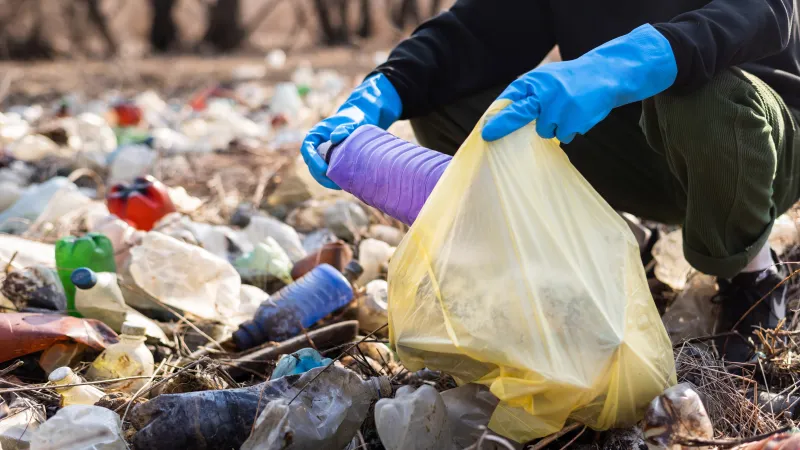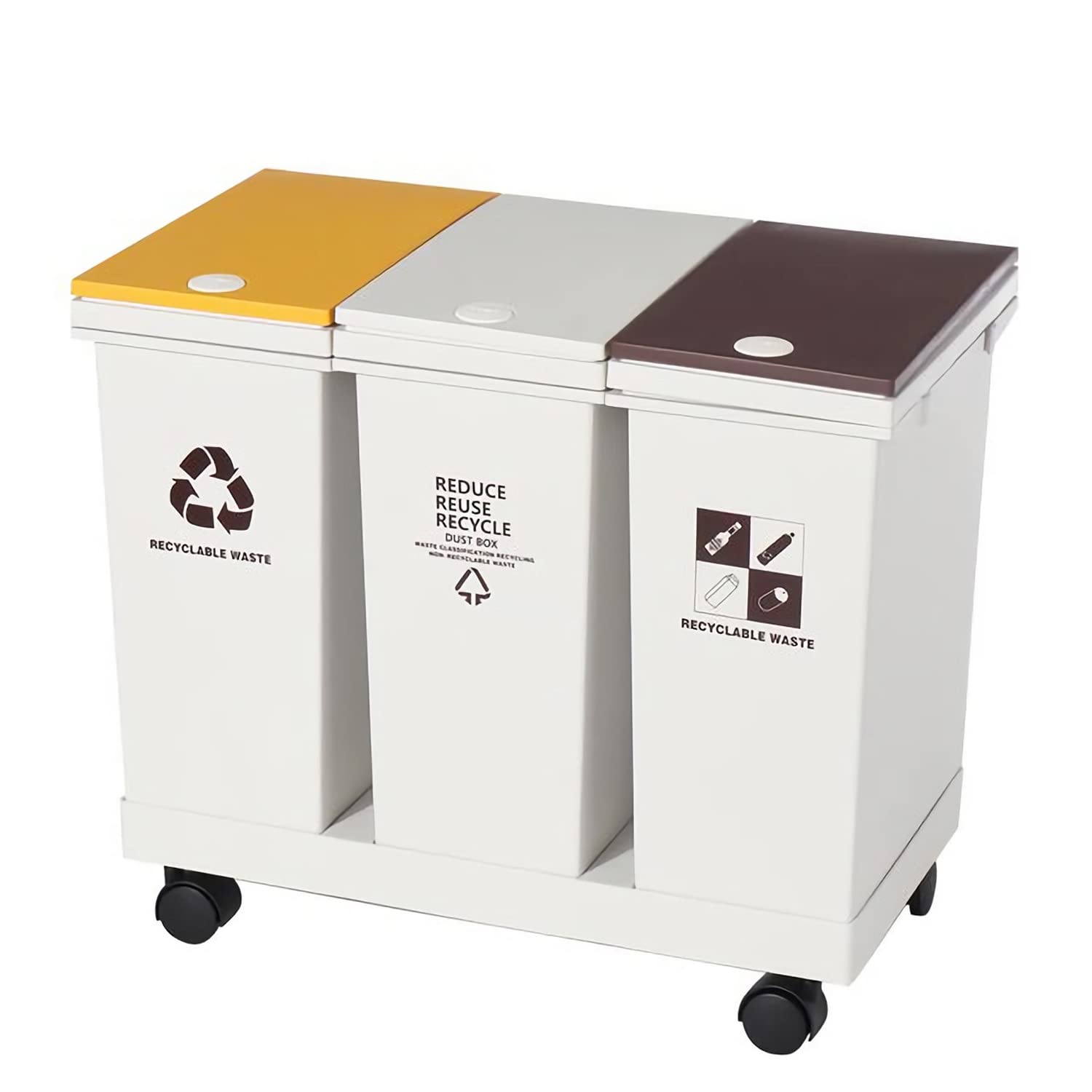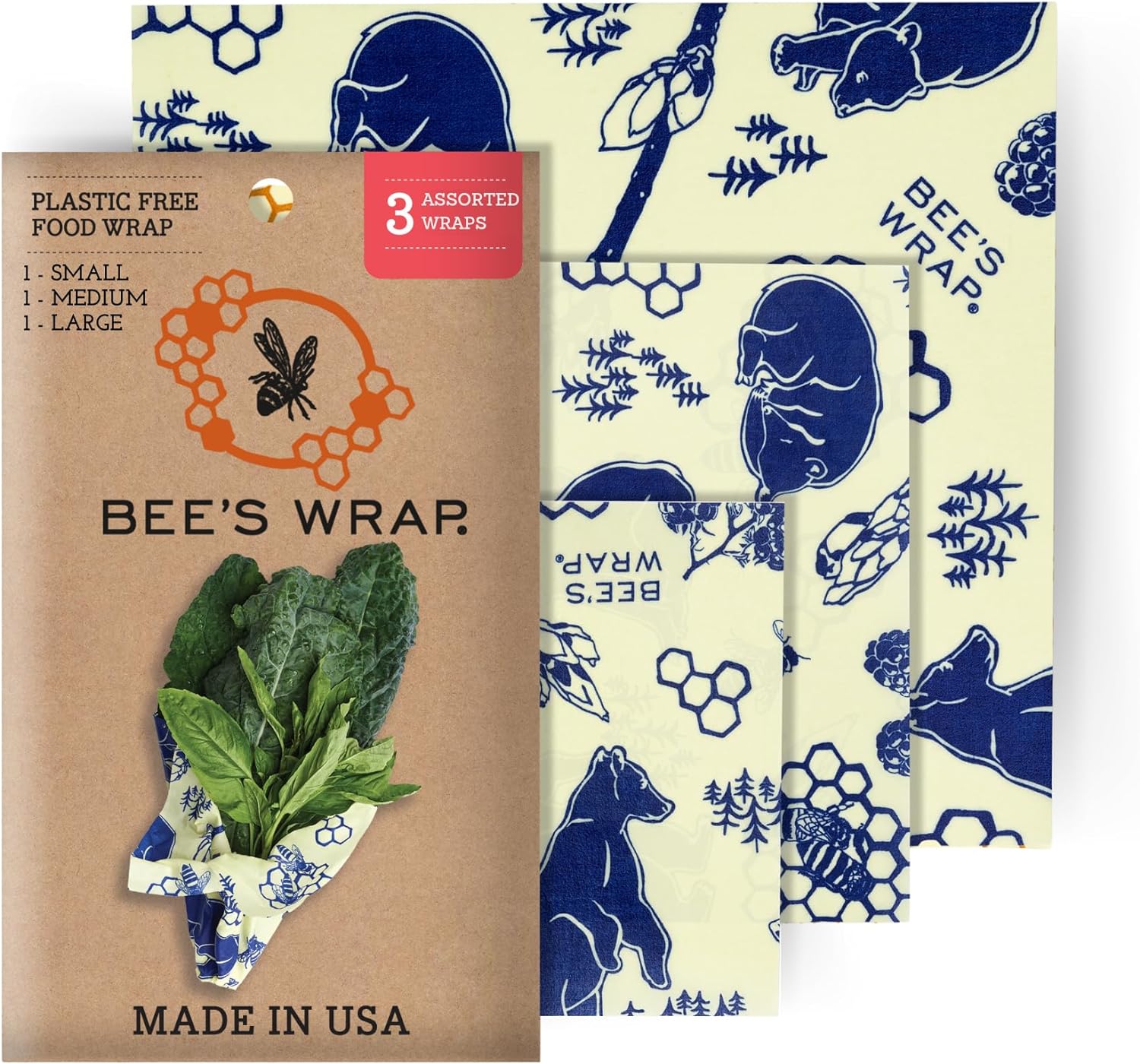
Reducing waste is a crucial step toward creating a more sustainable and environmentally friendly world. As the global population continues to grow, so does the amount of waste produced. This not only strains our natural resources but also contributes to pollution and climate change. Fortunately, there are many ways individuals and communities can help reduce waste. Here are some strategies to consider:
Adopt the 3 R's: Reduce, Reuse, Recycle
The most fundamental approach to waste reduction involves the principles of reducing, reusing, and recycling.
Reduce: The first and most impactful step is to minimize the amount of waste we produce. This can be achieved by being mindful of our consumption habits. For example, choosing products with minimal packaging, buying in bulk to reduce packaging waste, and avoiding single-use items like plastic bags, bottles, and straws can significantly cut down on waste.
Recycle Kitchen Trash Can
A recycle kitchen trash can helps reduce waste by enabling efficient sorting of recyclables and non-recyclables, making recycling more convenient. It encourages proper waste management, decreases landfill contributions, and supports environmental sustainability by ensuring that materials like plastics, paper, and glass are correctly processed and repurposed.
Reuse: Reusing items extends their life and keeps them out of landfills. Opt for durable, reusable products over disposable ones. Bring your own shopping bags, coffee cups, and water bottles. Donate or sell items you no longer need instead of throwing them away. Upcycling, which involves creatively repurposing old items into something new and useful, is another excellent way to reuse materials.
Recycle: Properly sorting and recycling materials like paper, plastic, glass, and metal helps ensure they can be processed and made into new products. Familiarize yourself with your local recycling guidelines, as they can vary. Composting organic waste like food scraps and yard trimmings also reduces the amount of waste sent to landfills and produces valuable nutrient-rich soil for gardening.
Polarized Recycled Sunglasses
Polarized recycled sunglasses reduce waste by utilizing recycled materials like plastics and metals, diverting them from landfills and oceans. They promote sustainable consumer choices, support a circular economy, and raise awareness about environmental issues, all while offering durable, long-lasting eyewear that minimizes the need for frequent replacements.
Support Sustainable Products and Companies
Choosing products made from recycled materials or those designed to be more sustainable can make a big difference. Look for items with eco-friendly certifications or those made by companies committed to reducing their environmental footprint. Supporting businesses that prioritize sustainability encourages more companies to adopt greener practices.
Bamboo Toilet Paper 3 Ply - Eco Friendly, Sustainable Tissue
Bamboo toilet paper reduces waste by using fast-growing, renewable bamboo instead of trees, minimizing deforestation. Its 3-ply design ensures durability and efficiency, reducing the amount needed per use. Eco-friendly and biodegradable, it decomposes faster than traditional toilet paper, contributing less to landfill waste and environmental impact.
Engage in Community Clean-up Efforts
Participating in or organizing community clean-up events helps remove litter from natural areas, streets, and waterways. These efforts not only beautify the community but also prevent waste from harming wildlife and ecosystems. Local governments and organizations often host clean-up events, providing an excellent opportunity for civic engagement and environmental stewardship.
Compost Bin with Lid, Made of Sustainable Bamboo Fiber
A compost bin with lid made of sustainable bamboo fiber helps reduce waste by providing a convenient way to collect and compost organic scraps. Its eco-friendly bamboo construction minimizes plastic use, while composting reduces landfill waste and produces nutrient-rich soil, supporting a sustainable, circular waste management system.
Advocate for Better Policies
Policies and regulations play a significant role in waste management. Advocate for policies that promote waste reduction, such as bans on single-use plastics, incentives for recycling, and programs that encourage manufacturers to take responsibility for their products' end-of-life disposal. Voting for leaders who prioritize environmental issues and supporting organizations that lobby for stronger environmental protections can lead to systemic changes that reduce waste on a larger scale.
Reusable Beeswax Food Wraps Made in the USA, Eco Friendly Sustainable Organic, Assorted 3 Pack
Reusable beeswax food wraps help reduce waste by replacing single-use plastic wraps. They are washable, biodegradable, and can be reused for up to a year, minimizing plastic pollution and landfill contributions. Made from natural materials, they provide a sustainable alternative for preserving food, promoting eco-friendly kitchen practices.
Educate and Raise Awareness
Educating yourself and others about the impacts of waste and the importance of waste reduction is vital. Share information about sustainable practices with friends, family, and your community. Schools, workplaces, and social groups can host workshops, presentations, and campaigns to spread awareness and encourage collective action.
Eco-Friendly Cocktail Straws 6,000 Count - Sustainable Marine Biodegradable Compostable Stirrer, 6 Pack
Eco-friendly cocktail straws reduce waste by replacing single-use plastic straws with biodegradable, compostable alternatives. Made from sustainable materials, they decompose naturally, minimizing environmental pollution and landfill burden. With a 6,000 count, they support large-scale adoption of eco-friendly practices, significantly cutting down on plastic waste in marine and terrestrial environments.
Practice Conscious Consumerism
Being a conscious consumer means making intentional choices about what you buy, how it's used, and what happens to it at the end of its life. This includes considering the lifecycle of products, choosing high-quality items that last longer, and supporting brands that use sustainable practices. Conscious consumerism also involves reducing overall consumption and being satisfied with fewer, better-quality items.
Electric Kitchen Composter, 2.5L Capacity, Turn Food Waste and Scraps into Dry Compost
An electric kitchen composter reduces waste by transforming food scraps into dry compost, minimizing landfill contributions. Its 2.5L capacity efficiently processes organic waste, producing nutrient-rich compost for gardening. This eco-friendly device promotes sustainable living, decreases methane emissions from decomposing food, and supports a circular waste management system.
Conclusion
Reducing waste requires a combination of individual actions, community efforts, and systemic changes. By adopting the 3 R's, supporting sustainable products, engaging in community clean-ups, advocating for better policies, educating others, and practicing conscious consumerism, we can collectively make a significant impact. Each small step contributes to a larger movement toward a more sustainable and waste-free world.











Share:
Mother Earth's Best Allies: How Moms Can Help Save Our Planet
The Art of Proper Waste Disposal: A Step Towards a Sustainable Future